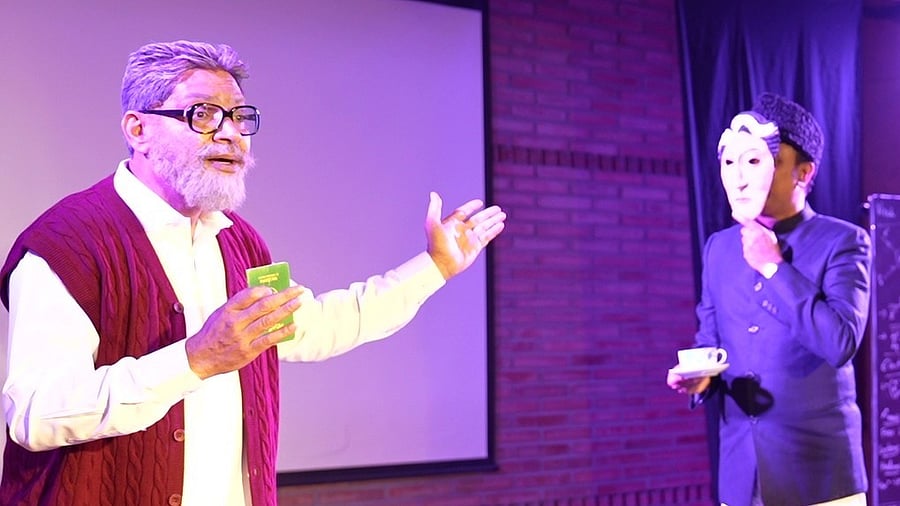
Credit: Special Arrangement
An English play premiering on Friday will spotlight the life and work of Nobel laureate Abdus Salam, a pioneering physicist shunned by his country for his faith.
In 1979, Salam became the first Muslim to win the Nobel Prize in Physics. He shared the honour with Steven Weinberg and Sheldon Glashow. Their work on electroweak unification paved the way for the discovery of the ‘God Particle’. Born in Pakistan’s Jhang region, he served as the country’s chief scientific advisor but left after Parliament declared his sect, the Ahmadis, non-Muslim. In the religious intolerance that followed, he was banned from lecturing, and the word ‘Muslim’ was removed from his tombstone, which now reads: “Abdus Salam, the First ….. Nobel Laureate”.
His burial forms the premise of ‘The Trial of Abdus Salam’, written and directed by Nilanjan P Choudhury. Set in a courtroom, the play centres on a government official interrogating Salam as he pleads to be buried in Pakistan next to his parents. Through the questioning, his trials and triumphs are revealed.
“It’s a work of fiction based on true events. For example, the interrogator raises the accusation Salam once faced — leaking Pakistan’s nuclear secrets to India. The Quran was a source of inspiration for Salam’s work in high-energy physics, and the interrogator probes how the two are connected,” says Choudhury, a theatre artiste and science communicator.
Choudhury admits it’s hard to engage Indian audiences with science — “many even confuse Abdus Salam with Abdul Kalam.” But the success of his previous play, ‘The Square Root of a Sonnet’, about the conflict between astrophysicists S Chandrasekhar and Arthur Eddington, proved that good storytelling finds its audience. “Emotional conflict and mystery drive good drama and lives like Salam’s are inherently fascinating,” he says.
On April 18, 3.30 pm and 7.30 pm, at Ranga Shankara, J P Nagar. Tickets online.